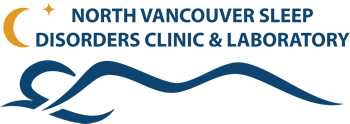Narcolepsy
- Home
- Sleep Disorders
- Narcolepsy
Narcolepsy
Narcolepsy is a chronic sleep disorder characterized by overwhelming daytime drowsiness and sudden attacks of sleep. People with narcolepsy often find it difficult to stay awake for long periods, regardless of the circumstances. Patients with narcolepsy often have a sense of feeling tired all the time but also can feel an uncontrollable urge to sleep, which can happen at any time and occasionally without warning. This condition can significantly disrupt daily activities. Although there's no cure for narcolepsy, medications and lifestyle changes can help manage the symptoms.
The cause of narcolepsy isn't entirely understood, but it often involves a combination of genetic and environmental factors. It is related to a deficiency in a brain chemical called hypocretin (orexin), which plays a key role in regulating sleep and wakefulness. Symptoms usually start in childhood, adolescence, or young adulthood and can include cataplexy (a sudden loss of muscle tone often triggered by strong emotions), sleep paralysis and nighttime hallucinations.
There are 3 types of narcolepsy
Type I
With type I narcolepsy, the narcoleptic experiences episodes called cataplexy. Other symptoms include excessive daytime fatigue, hallucinations, and sleep paralysis.
About 20% of cases.
Type II
Type II narcolepsy is also categorized by excess fatigue in the daytime, hallucinations, and sleep paralysis. The difference is it doesn’t involve cataplexy (the sudden collapse and weakening of muscles associated with emotional trigger). The majority of cases are type II narcolepsy.
About 80% of cases.
Secondary Narcolepsy
This is the rarest type and is associated with damage to the hypothalamus. It can be associated with traumatic brain injury, MS, strokes or encephalitis.
How is narcolepsy diagnosed?
The diagnosis of narcolepsy requires a detailed history and appropriate sleep studies.
The diagnosis involves clinical assessment by our physicians to rule out other sleep disorders that can cause similar symptoms and subsequent testing in our lab with both an overnight polysomnography (PSG) followed by a daytime nap test (MSLT).
The "MSLT" or Multiple Sleep Latency Test is a daytime nap test that objectively evaluates your degree of daytime sleepiness. The test consists of 5 nap opportunities spaced out every 2 hours throughout the day at predetermined times. During each nap opportunity you lie down in a quiet, darkened room and see how quickly you fall asleep. The nap trial begins when the lights are turned off. You will lie quietly in bed and try to go to sleep. The MSLT will measure how long it takes you to fall asleep. It will also measure how long it takes for you to reach REM sleep.
The technologist will awaken you 15 minutes after you fall asleep. If you are unable to fall asleep, the nap trial will end after 20 minutes. At this time, you will have a break until the next nap trial begins. You will need to stay awake. You will start a nap trial every 2 hours.
